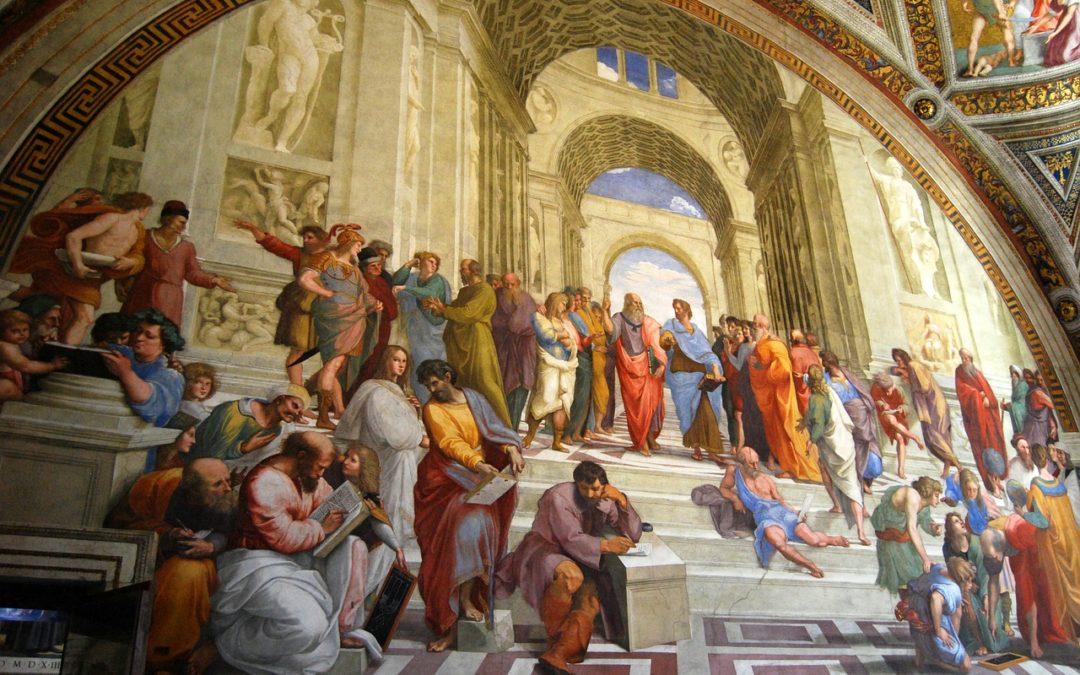How a nation educates our children determines the future of our society. I often have the privilege of meeting families who are concerned not only about where our society is, but also about the culture and content of modern education. They are looking for something better for their children, and that is exactly what we offer at Fortis Academy through a classical Christian education. Because we are at the beginning stage of a revival of classical education, a lot of work is needed to define it. I find conversations fascinating because people often assume that it is a return to Greek and Roman forms of education. This is a great place to start a discussion because it highlights the reason that we are a classical Christian school.
Classical education (and even modern education) can be traced back to ancient Greece, but specifically to Athens. Ancient Greece was a confederation of city states, and we can learn a lot about the trajectory of modern culture by examining the difference between Sparta and Athens. Sparta was a military state, and education was primarily military. The state would determine if a boy was capable of being a soldier, and if not, they were put to death. At the age of seven, boys would be taken from their homes and trained to be a soldier. All citizens belong to and existed for the benefit of the state, and family was secondary.
Education in Athens was like Sparta until the 5th century when intellectual interests become more prominent. The whole emphasis was still the prosperity of the state, but it was believed that the full development of the individual in all of his powers was the best way to secure it. This was the beginning of a liberal arts education. It was not simply functional (producing soldiers) but an education in virtue that emphasized developing individuals. Eventually, as Athens prospered economically and politically (toward the end of the 5th century), that education began to become functional again, emphasizing the development of skills to make one successful politically. Politics became a vehicle for wealth and influence, and rhetoric (the art of persuasion) became the emphasis. They became relativists, believing that there was no absolute truth (under the influence of sophists), and success rather than virtue ruled the day. This resulted in a cultural war (for example, Plato was a harsh critic of sophistry), because no nation without virtue can survive. In that brief history we can see the seedbed of modern progressive education that trains people for success but ignores virtue. What they did was discover principles of persuasion that exist in creation, which, when wed with proper values (and faith), are an extraordinary basis for education. Yet, the problem is still that the state is the most important entity, and that is why we are a classical Christian school.
The classical tradition that we subscribe to is founded in the church and emphasizes a Christian worldview. The biblical tradition sees the world as created by God and therefore anything that is good, true and beautiful by nature reveals the Creator. It also sees man as created in the image of God, and that our supreme goal is to worship and serve Jesus by becoming like Him for the glory of God and the service of His creation. The most important institution in society is the family, and the other foundational institutions are the church and state. It is only this view of reality that creates the context for true liberty and blessed society. From this perspective, a classical education gives people the skills and the character to be creative in the world, and a Christian education puts it to use in a way that is a blessing to all. We are living in a time where statism is once again becoming the fruit of education, to the point that socialism as an ideology sees the state as the parent and that citizens belong to the state. A Christian worldview sees the state as an institution that exists to serve citizens to promote justice and prosperity. Our hope is that through a Fortis education, our children will catch a vision of a biblical social architecture and develop with wisdom and eloquence to promote it (make disciples) in their generation.


Comments